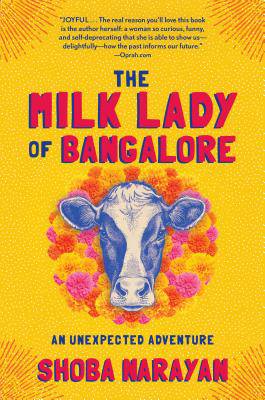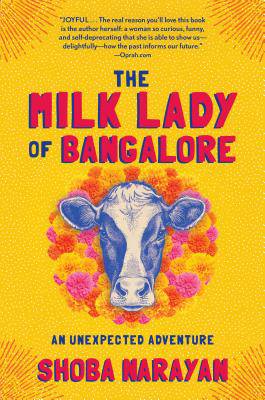
- Afhalen na 1 uur in een winkel met voorraad
- Gratis thuislevering in België vanaf € 30
- Ruim aanbod met 7 miljoen producten
- Afhalen na 1 uur in een winkel met voorraad
- Gratis thuislevering in België vanaf € 30
- Ruim aanbod met 7 miljoen producten
Zoeken
€ 24,95
+ 49 punten
Omschrijving
The elevator door opens. A cow stands inside, angled diagonally to fit. It doesn't look uncomfortable, merely impatient. "It is for the housewarming ceremony on the third floor," explains the woman who stands behind the cow, holding it loosely with a rope. She has the sheepish look of a person caught in a strange situation who is trying to act as normal as possible. She introduces herself as Sarala and smiles reassuringly. The door closes. I shake my head and suppress a grin. It is good to be back. When Shoba Narayan--who has just returned to India with her husband and two daughters after years in the United States--asks whether said cow might bless her apartment next, it is the beginning of a beautiful friendship between our author and Sarala, who also sells fresh milk right across the street from that thoroughly modern apartment building. The two women connect over not only cows but also family, food, and life. When Shoba agrees to buy Sarala a new cow, they set off looking for just the right heifer, and what was at first a simple economic transaction becomes something much deeper, though never without a hint of slapstick. The Milk Lady of Bangalore immerses us in the culture, customs, myths, religion, sights, and sounds of a city in which the twenty-first century and the ancient past coexist like nowhere else in the world. It's a true story of bridging divides, of understanding other ways of looking at the world, and of human connections and animal connections, and it's an irresistible adventure of two strong women and the animals they love.
Specificaties
Betrokkenen
- Auteur(s):
- Uitgeverij:
Inhoud
- Aantal bladzijden:
- 288
- Taal:
- Engels
Eigenschappen
- Productcode (EAN):
- 9781616208677
- Verschijningsdatum:
- 15/01/2019
- Uitvoering:
- Paperback
- Formaat:
- Trade paperback (VS)
- Afmetingen:
- 137 mm x 208 mm
- Gewicht:
- 226 g

Alleen bij Standaard Boekhandel
+ 49 punten op je klantenkaart van Standaard Boekhandel
Beoordelingen
We publiceren alleen reviews die voldoen aan de voorwaarden voor reviews. Bekijk onze voorwaarden voor reviews.











